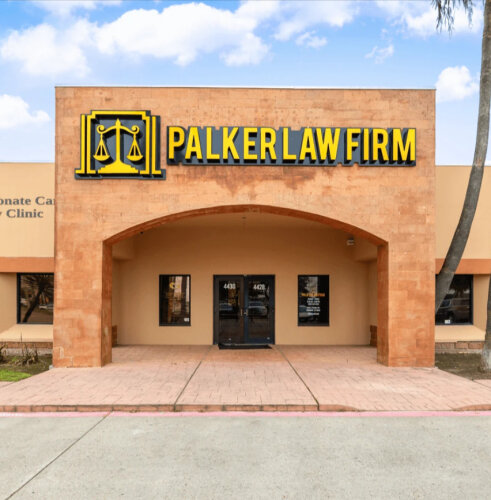Best Assault & Battery Lawyers in Edinburg
Share your needs with us, get contacted by law firms.
Free. Takes 2 min.
List of the best lawyers in Edinburg, United States
About Assault & Battery Law in Edinburg, United States
If you live in Edinburg, United States, criminal cases involving physical harm, threats of harm, or unwanted touching are taken seriously. In Texas - the state that includes Edinburg - the term "assault" is the primary statutory offense. Some states use the phrase "assault and battery" to describe two separate crimes - assault for threat or attempt and battery for actual physical contact - but Texas law generally treats these behaviors under assault and aggravated assault statutes. Penalties depend on the nature and severity of the act, whether a weapon was used, whether the injury was serious, and whether the victim is a protected class such as a family member or public servant.
Why You May Need a Lawyer
You should consult a lawyer if you are accused of assault or if you have been a victim seeking protection or compensation. Common situations where legal help is important include:
- You have been arrested or received a citation alleging assault or aggravated assault.
- You face allegations of domestic or family violence, where protective orders and specialized prosecution practices apply.
- A weapon or serious bodily injury is alleged - these facts can elevate charges to felony level.
- You are not a U.S. citizen - criminal convictions can carry immigration consequences.
- You want to respond to a protective order, restraining order, or civil claims related to an assault.
- You need help preserving evidence, negotiating bail or bond, or pursuing a plea agreement or trial strategy.
- You are a victim seeking a protective order, victim compensation, or assistance navigating the criminal process.
Local Laws Overview
Key aspects of the local legal landscape that are particularly relevant in Edinburg include:
- Statutory Framework - Assault and aggravated assault are governed by the Texas Penal Code. The law covers threats, attempted contact, unwanted touching, causing bodily injury, and use of weapons.
- Severity Levels - Charges can range from misdemeanor to felony. Simple assaults involving threats or minor contact are often lower level offenses. Assaults that cause bodily injury, use a weapon, or result in serious injury are frequently charged as felonies.
- Family Violence - Allegations involving intimate partners or family members are handled with special procedures. Law enforcement often responds quickly to family violence calls, and prosecutors may pursue charges aggressively. Victims can seek protective orders under state family law provisions.
- Use of Force Defenses - Texas law recognizes self-defense and defense of others when force used was reasonable and necessary to prevent harm. The facts matter - the timing, proportionality, and reasonableness of the response are central issues.
- Criminal Process - Arrests can be made on probable cause. Misdemeanor cases may proceed through municipal or county courts. Felonies are typically prosecuted by the county district attorney and may involve grand jury indictment, felony arraignment, pretrial hearings, plea negotiation, or trial.
- Consequences Beyond Criminal Penalties - Convictions can have collateral consequences including loss of firearm rights, employment problems, child custody impact, and immigration consequences for non-citizens.
Frequently Asked Questions
What is the difference between assault and battery in Edinburg?
In Edinburg, which follows Texas law, the state typically uses the term assault to cover threats, attempts, and harmful or offensive physical contact. The separate term battery is not commonly used in Texas statutes. If you need clarification in your case, an attorney can explain which specific offense is charged and why.
Can I be arrested for a verbal threat?
Yes. Threats that put another person in reasonable fear of imminent bodily injury can be charged as assault. Whether an arrest occurs depends on the specifics - what was said, the context, and whether officers have probable cause to believe a crime occurred.
What are the typical penalties if someone is convicted of assault?
Penalties vary widely. Lower level assaults may result in fines, probation, community service, or short jail terms. More serious assaults - assault causing bodily injury, assault with a weapon, or assaults resulting in serious injury - can lead to felony charges with prison sentences and larger fines. A lawyer should explain likely sentencing ranges based on the offense level and your record.
Can I claim self-defense?
Self-defense is a recognized legal defense when you reasonably believe force was necessary to protect yourself or someone else from imminent harm. A successful self-defense claim depends on the facts - the nature of the threat, the force used, and whether retreat or de-escalation was possible. An attorney can help gather evidence and present a self-defense argument.
What should I do immediately after being charged with assault?
Do not speak to law enforcement without a lawyer present, if possible. Preserve any evidence - photos, medical records, video, text messages, and witness information. Attend all court dates, arrange for bail or bond, and contact an attorney promptly to discuss defenses and next steps.
If I am the victim, how do I get a protective order?
Victims can request protective orders from the family or district court. The court can issue temporary emergency orders and later hold hearings for longer-term orders. A lawyer, victim advocate, or court clerk can explain the local filing process and assist with completing paperwork.
Will an assault charge affect my immigration status?
Possibly. Certain criminal convictions can lead to deportation, inadmissibility to the United States, or denial of immigration benefits. Non-citizens should consult both a criminal defense attorney and an immigration attorney to understand the intersection of criminal and immigration consequences.
How long will my case take to resolve?
Case timelines vary. Misdemeanor matters can resolve in weeks to months. Felony cases may take several months to more than a year because of investigative steps, pretrial motions, plea negotiations, and scheduling for trial. Complexity and backlog in the court system affect timing.
Can charges be dropped or reduced?
Yes. Prosecutors may drop charges or offer lesser charges depending on evidence, witness credibility, plea negotiations, or diversion programs. A skilled defense lawyer can negotiate with the prosecutor, identify weaknesses in the case, and advocate for reduced charges or alternative resolutions like deferred adjudication where eligible.
How do I find a good local lawyer in Edinburg?
Look for lawyers with experience in criminal defense and assault cases. Ask about trial experience, local court experience, fee structure, and case strategy. Use referrals from trusted sources, local bar association lawyer-referral services, and organizations offering free or low-cost consultations to compare options.
Additional Resources
When dealing with assault matters in Edinburg, consider contacting or using services from these types of local and state resources:
- Local law enforcement agencies such as the Edinburg Police Department and the Hidalgo County Sheriff - for reporting incidents and getting information on arrests.
- The Hidalgo County District Attorney - for information about prosecution practices and victim services in the county.
- State Bar of Texas lawyer-referral services - to find qualified criminal defense attorneys in your area.
- Local legal aid organizations - for income-qualified individuals who need civil or criminal-related help.
- Victim assistance programs and domestic violence shelters - for safety planning, emergency shelter, and counseling if you are a victim.
- State victim services agencies - for information on crime victim compensation, protective orders, and support services.
- Local courthouse clerks - for procedural questions about filings, court dates, and document requirements.
Next Steps
If you are facing an assault-related situation, follow these steps to protect your interests:
- Preserve evidence - take photos of injuries and locations, keep medical records and receipts, save messages and videos, and write down witness names and contact information.
- Avoid public statements - do not post about the incident on social media and limit discussion with others. Statements can be used in court.
- Contact an attorney - seek a consultation with a criminal defense lawyer experienced in assault matters. If you are a victim, consider contacting a lawyer or victim advocate to help obtain protective orders and navigate the process.
- Attend all court appearances - missing a court date can lead to additional charges or arrest warrants.
- Consider victim services - if you are a victim of violence, local victim advocates can help with safety planning, counseling, and compensation applications.
- Prepare for the long run - criminal cases can be emotionally and financially draining. Understand your rights, ask questions about fees and strategy, and get a clear plan from your attorney about next steps and likely outcomes.
Getting an informed attorney early, preserving evidence, and following court procedures can significantly improve outcomes for both defendants and victims. If you are unsure where to begin, a local lawyer-referral service or victim assistance office can help you connect with the right professionals in Edinburg.
Lawzana helps you find the best lawyers and law firms in Edinburg through a curated and pre-screened list of qualified legal professionals. Our platform offers rankings and detailed profiles of attorneys and law firms, allowing you to compare based on practice areas, including Assault & Battery, experience, and client feedback.
Each profile includes a description of the firm's areas of practice, client reviews, team members and partners, year of establishment, spoken languages, office locations, contact information, social media presence, and any published articles or resources. Most firms on our platform speak English and are experienced in both local and international legal matters.
Get a quote from top-rated law firms in Edinburg, United States — quickly, securely, and without unnecessary hassle.
Disclaimer:
The information provided on this page is for general informational purposes only and does not constitute legal advice. While we strive to ensure the accuracy and relevance of the content, legal information may change over time, and interpretations of the law can vary. You should always consult with a qualified legal professional for advice specific to your situation.
We disclaim all liability for actions taken or not taken based on the content of this page. If you believe any information is incorrect or outdated, please contact us, and we will review and update it where appropriate.










